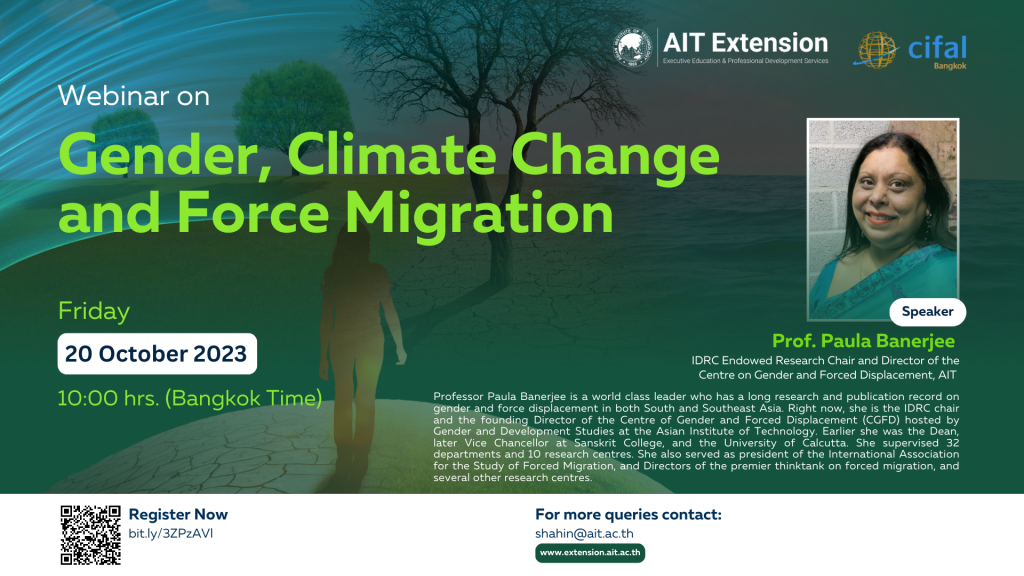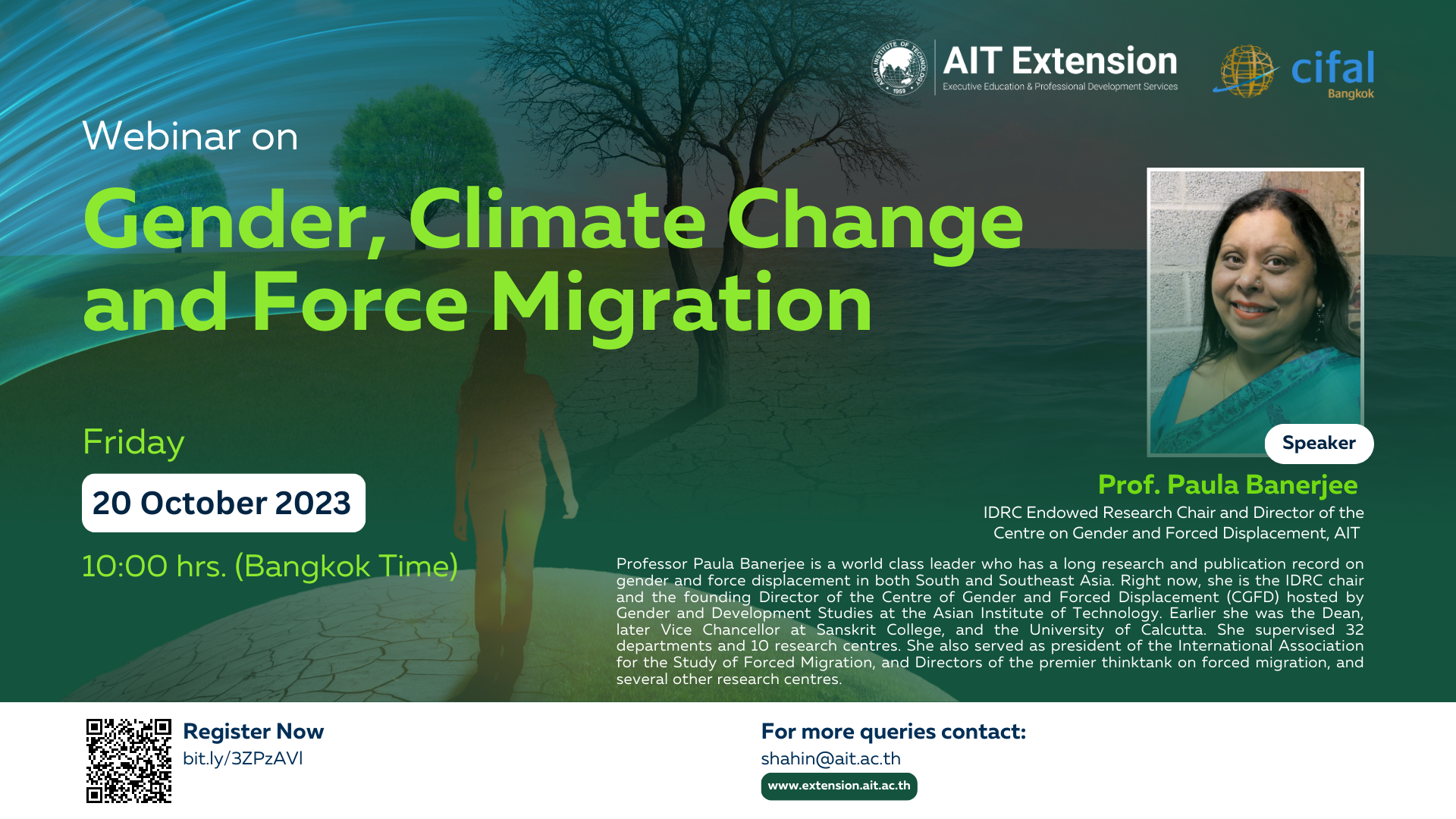AIT Extension is pleased to invite you to the webinar on “Gender, Climate Change and Force Migration” by Prof. Paula Banerjee, IDRC Endowed Research Chair and Director of the Centre of Gender and Forced Displacement, AIT.
Date: Friday, 20 October 2023
Time: 10:00 hrs. Bangkok time
The understanding that environmental degradation resulting in precarious climatic conditions the world over, producing not only massive global warming, but also mass displacements of particularly vulnerable population groups, is a phenomenon that is vexing all who are concerned about effects of migration. South Asia and South-East Asia encompassing a population of over 2.59 billion people is one of the densest regions of the world. . It is also the most disaster-prone areas of the world. And therefore, the number of people at risk of displacement is also extremely high. Each year thousands are displaced singularly for environmental disasters like floods, glacial lake outbursts, storm surges, droughts, cyclones, coastal erosion, groundwater depletion, sea level rise or climate change. Among those most at risk are women, children, members of LGBTQ community, and old and infirm.
Women, children, and members of the LGBTQ community are the population groups who are generally socially excluded from sites of power sharing and decision making. For any discussions on restorative or corrective measures, voices of these population groups need to be heeded. Environmental disasters and climate change have direct negative impacts on their lives. There is growing recognition of the need for a gender lens to understand the impact of environmental factors on human well-being. On-going research work has highlighted the gender divide in environmental quality and the ability to shape environmental outcomes. To give an example, South Asian women, because of their domestic work are much more affected by toxic air due to usage of solid fuel during cooking. Also, women’s sanitation needs are habitually overlooked in poorer societies compared to that of men. Because of women’s lack of control over resources they hardly ever have a voice in resource governance in South and Southeast Asia. That affects their health, education, ability to have wage paying jobs, psychosocial needs etc.
This webinar will address all these questions and much more in terms of gender amd climate change



